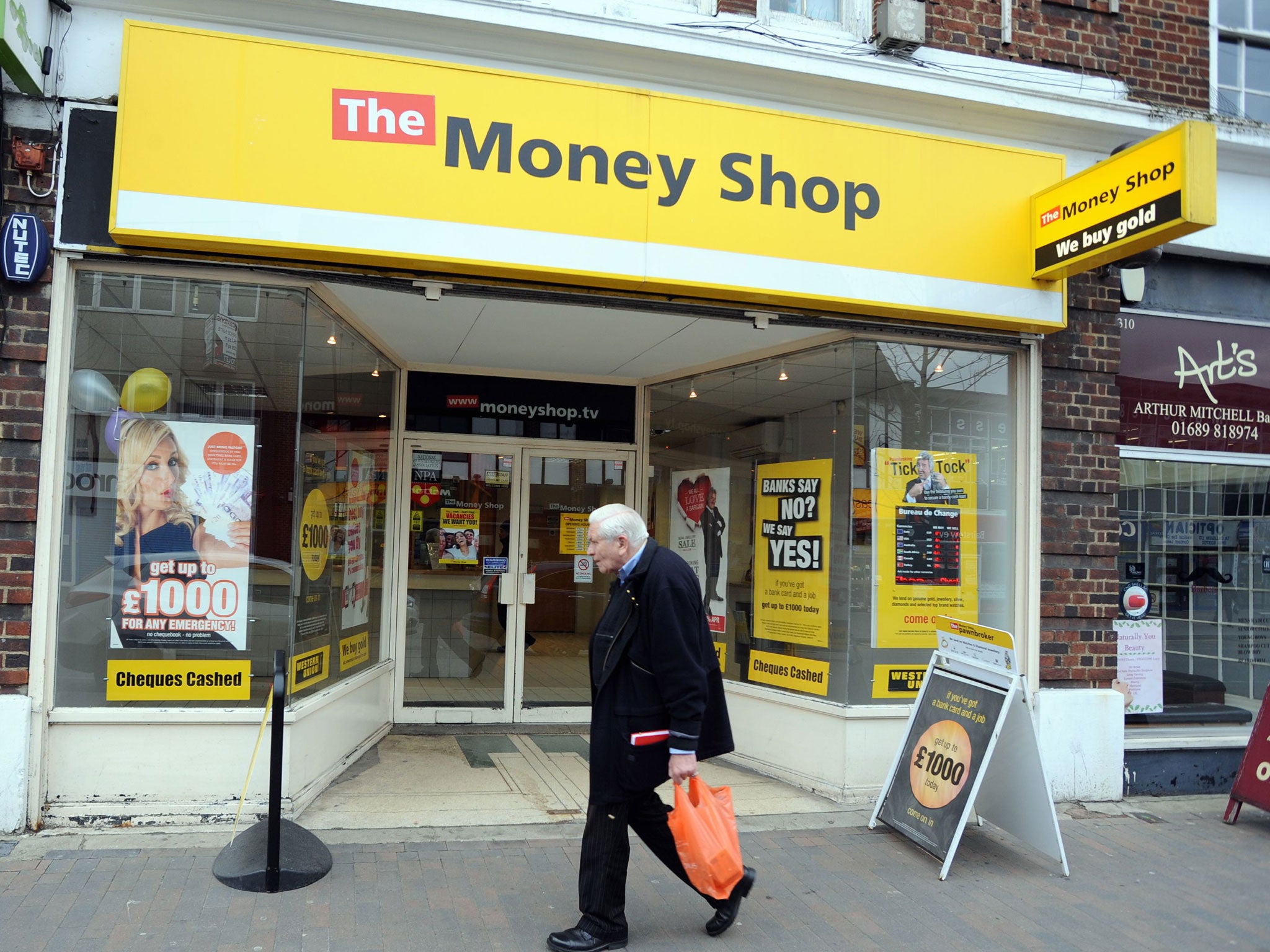A third of payday borrowers don't repay on time
Many taking out high-cost loans are younger males and need the cash for living expenses, reports Simon Read

Your support helps us to tell the story
From reproductive rights to climate change to Big Tech, The Independent is on the ground when the story is developing. Whether it's investigating the financials of Elon Musk's pro-Trump PAC or producing our latest documentary, 'The A Word', which shines a light on the American women fighting for reproductive rights, we know how important it is to parse out the facts from the messaging.
At such a critical moment in US history, we need reporters on the ground. Your donation allows us to keep sending journalists to speak to both sides of the story.
The Independent is trusted by Americans across the entire political spectrum. And unlike many other quality news outlets, we choose not to lock Americans out of our reporting and analysis with paywalls. We believe quality journalism should be available to everyone, paid for by those who can afford it.
Your support makes all the difference.Half of all new payday loan borrowers end up rolling over their loan or taking out more loans within weeks, while a third of loans aren't repaid on time, the Competition Commission has revealed.
In its latest report into the high-cost credit sector yesterday the commission said: "Repeat use of payday loans, either through rolling over a loan or taking out a further loan, is prevalent."
Its analysis of 15m loans taken between January 2012 and August 2013 reveals that more than a third - 35 per cent - were not paid back on time. It also published research showing that payday lending customers are more likely to be younger males living in rented or social housing and in deprived areas.
The research paints a different picture to that suggested by payday lenders which claim that most of their customers are sophisticated young professionals who know what they are doing and can easily afford to pay around £30 for borrowing £100.
But the new report suggests that a bulk of borrowers don't know what they're doing when they turn to high-cost credit. Underlying the financial problems that many face is the fact that around half borrow to cover living expenses such as groceries and bills.
In another insight, the Competition Commission revealed that despite there apparently being hundreds of high-cost lenders, the market is controlled by three.
The most high profile is Wonga, which uses cute puppets to flog its deals. But there are two shadowy US payday lender giants, which between them use many different trading names to push their expensive loans on the public.
You probably won't have heard of CashEuroNet, a subsidiary of Chicago-based Cash America, a £1bn business. It runs three UK loan outfits, QuickQuid, Pounds to Pocket and Flexcredit. Another US outfit Dollar Financial is behind High Street-based The Money Shop, as well as PaydayUK and Payday Express.
The Money Shop this week became the latest payday lender to have an ad banned. The Advertising Standards Authority took action against an "irresponsible" TV advert for the firm because it gave the impression that the loans were suitable for dealing with ongoing financial worries.
The ASA branded the advert irresponsible for including a statement that "Keeping an eye on money can be a bit of a tease", suggesting that payday loans could be the answer.
Join our commenting forum
Join thought-provoking conversations, follow other Independent readers and see their replies
Comments